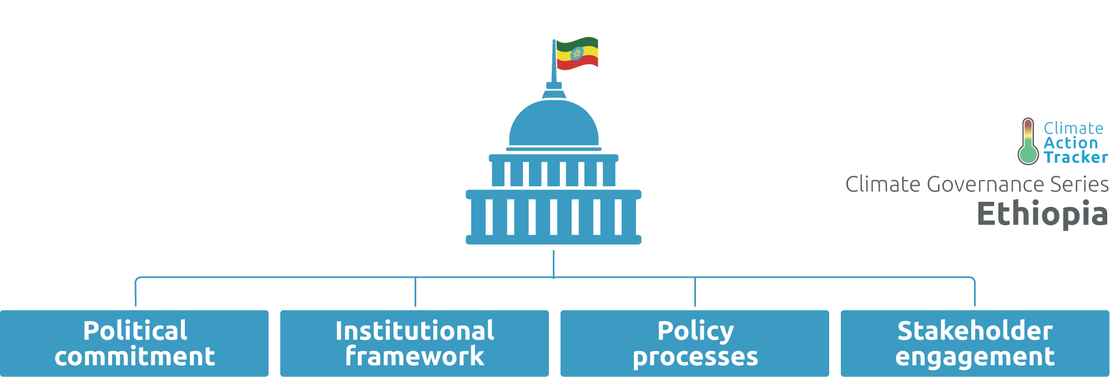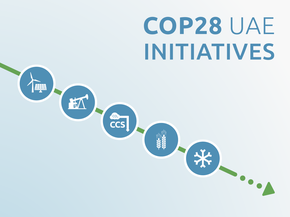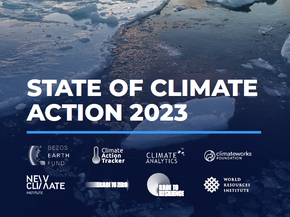Governance

Climate Governance Series
In December 2020, the CAT released its assessment of Ethiopia climate governance readiness. A summary of the report is below. The full report is available here.
Ethiopia country profile
Ethiopia’s national political commitment to climate mitigation is evident, but it is not a top priority. Leadership from the head of state and leading institutions is present but more needs to be done to ensure climate strategies are implemented and sectoral ministries exercise ownership over mitigation efforts.
While there is continuity of climate efforts across administrations, there is not the same commitment to ambitious action as when Ethiopia took early action and adopted its ten year climate strategy years ahead of the Paris Agreement. Although it is difficult to judge future commitment, it is likely that at least the current level of support would continue if there were a change in government. The Ministries of Finance and Environment, Forestry and Climate Change Commission have a strong reputation in delivering on climate change projects.
Institutional structures have mostly been established to facilitate coordination between ministries and, to a lesser extent, between other levels of government; however, these are limited by insufficient staffing and resources. Institutional learning may be affected by repeated restructuring of the lead climate institution. Ethiopia makes use of both domestic and international knowledge infrastructure. Efforts to improve staff retention and capacity would strengthen the established structures.
Many of Ethiopia’s processes for policy development, implementation and review are still under development. While climate mitigation has been considered in medium-term planning, with Ethiopia even adopting a 10-year climate strategy years before the Paris Agreement, long-term policy planning of national climate strategies is not fully developed. Ethiopia has not adopted an emissions reduction target for 2050, though it has set a long-term goal in its NDC to become carbon neutral. While the target date for carbon neutrality is undefined, this goal was an exceptional commitment from Ethiopia at the time it was made. Some progress has been made in developing a transparency framework; however, more work needs to be done for these to be operational and effective. Review and ratchet up mechanisms can also be strengthened.
The Ethiopian government engages the public through stakeholder engagement processes and has undertaken other education and outreach measures. While there is public awareness and support for climate change action, it remains low on the list of development priorities. The government does not have a formalised strategy to address the potential negative externalities of climate policies or the need for a just transition. Exogenous non-state actors have limited influence on decision-making.
Ethiopia is a Least Developed Country and faces a number of development challenges, which pervade much of the ability and priority to deliver on governance readiness to transition to a zero emissions society. However, this is not a permanent limitation on the transition and can be overcome with strong domestic leadership and support from the international community.1
1 The analysis for this report was completed in October 2020, before the recent escalation in the country's internal conflict (Marks, 2020).
Further analysis
Latest publications
Stay informed
Subscribe to our newsletter




